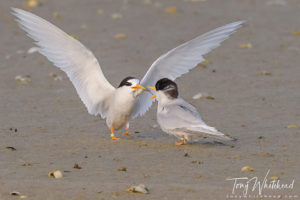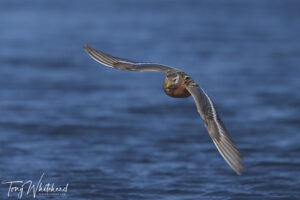During our Easter trip to the South Island, we based ourselves in Tekapo for two reasons. Firstly is in the Aoraki Mackenzie Dark Sky Reserve which is the southern hemisphere’s first and world’s largest dark sky reserve so is the perfect place for some stargazing at the Mount John Observatory. Secondly it scenically beautiful with glacial lakes and mountains.
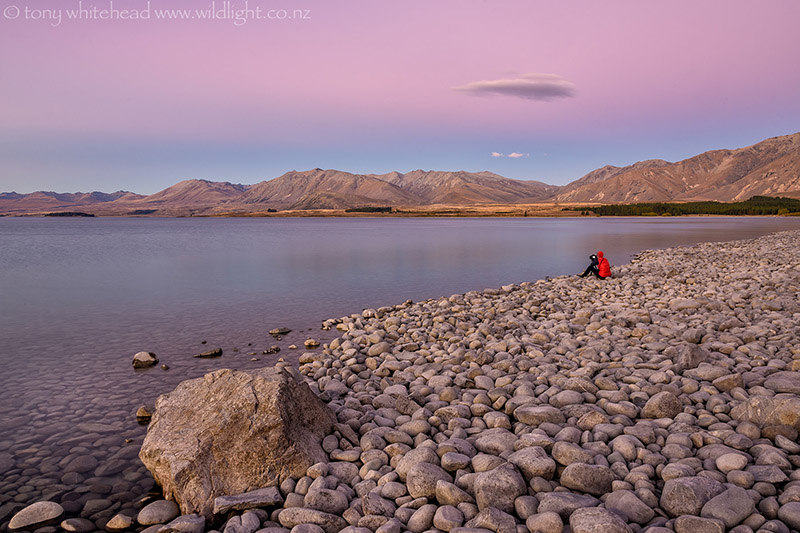
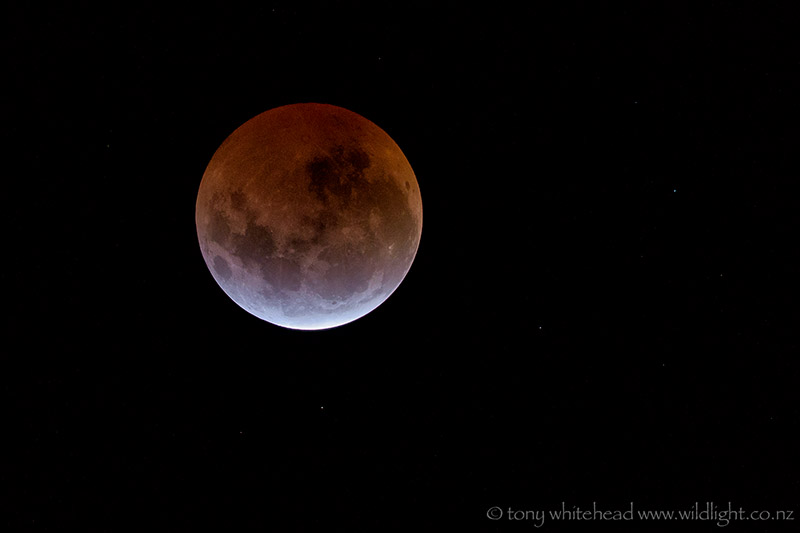
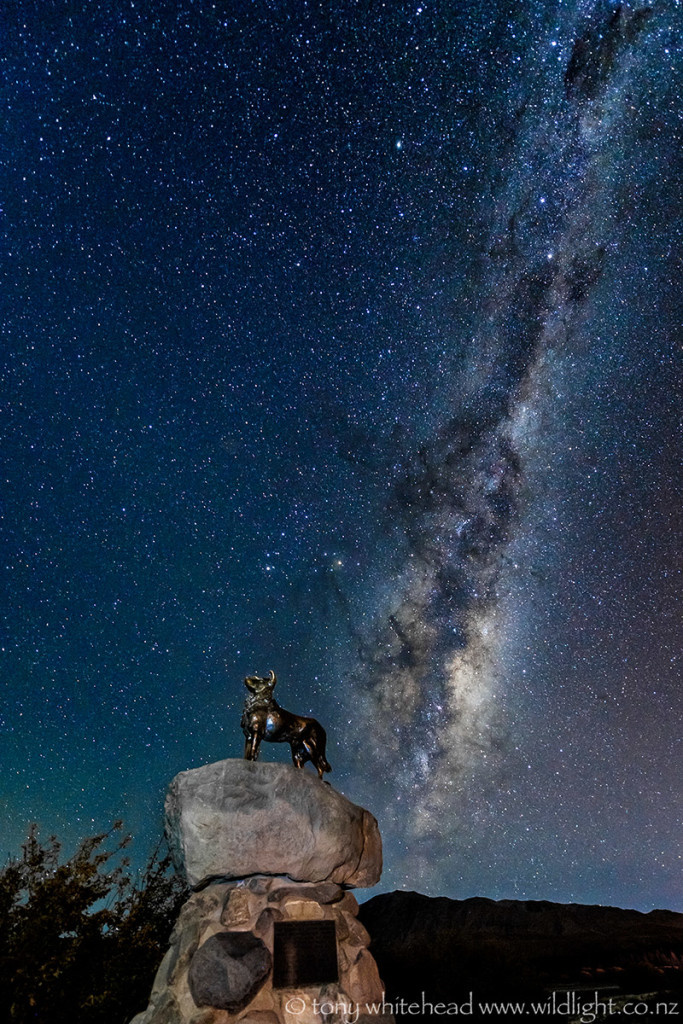
Our visit coincided with a full moon which is not usually conducive to stargazing but it happened to also be a total lunar eclipse which was well worth waiting up for and gave us a chance to capture some Milky Way images too. As the week progressed conditions improved as the moon rose later and later but unfortunately evening cloud got in the way of telescope use. We booked a trip with Earth & Sky and postponed each cloudy night until our last day when we decided to do a behind the scenes tour of the observatory. Initial disappointment was soon overtaken with the excitement of seeing the details of the observatory and the magnificent telescopes within their domes. Contemplating the magnitude of the universe has always made my brain hurt but, having done some courses in astronomy, it is fascinating how much we have been able to deduce from astronomical observation. New Zealand the the MOA telescope at Mount John have been closely involved in the search for and discovery of a number of exoplanets so it was especially exciting to see this instrument which we would have missed if it had been a clear night.
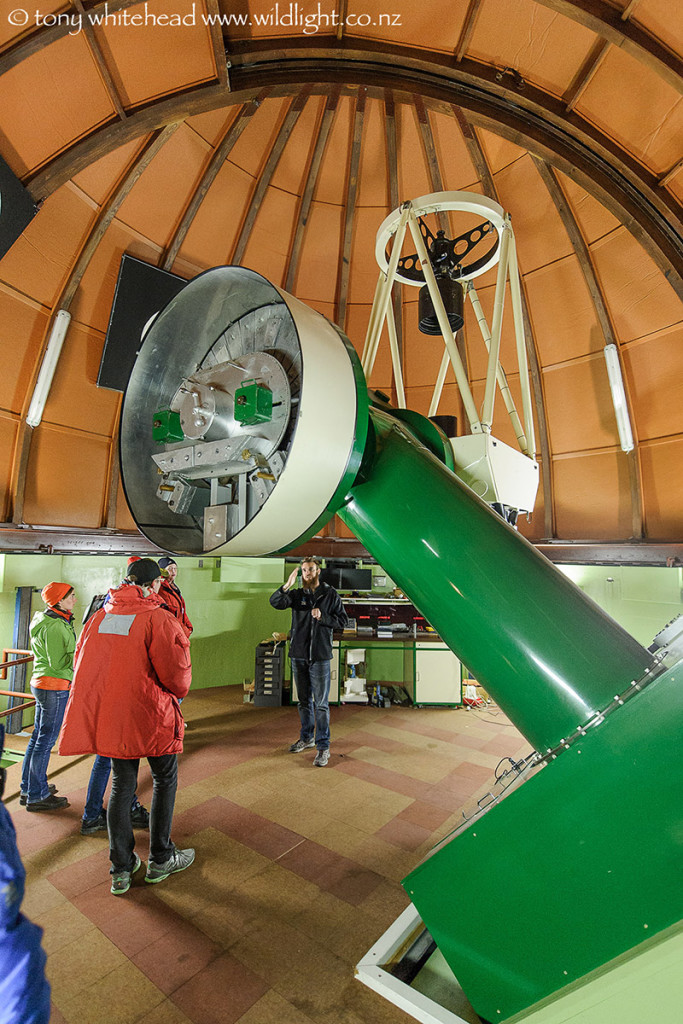
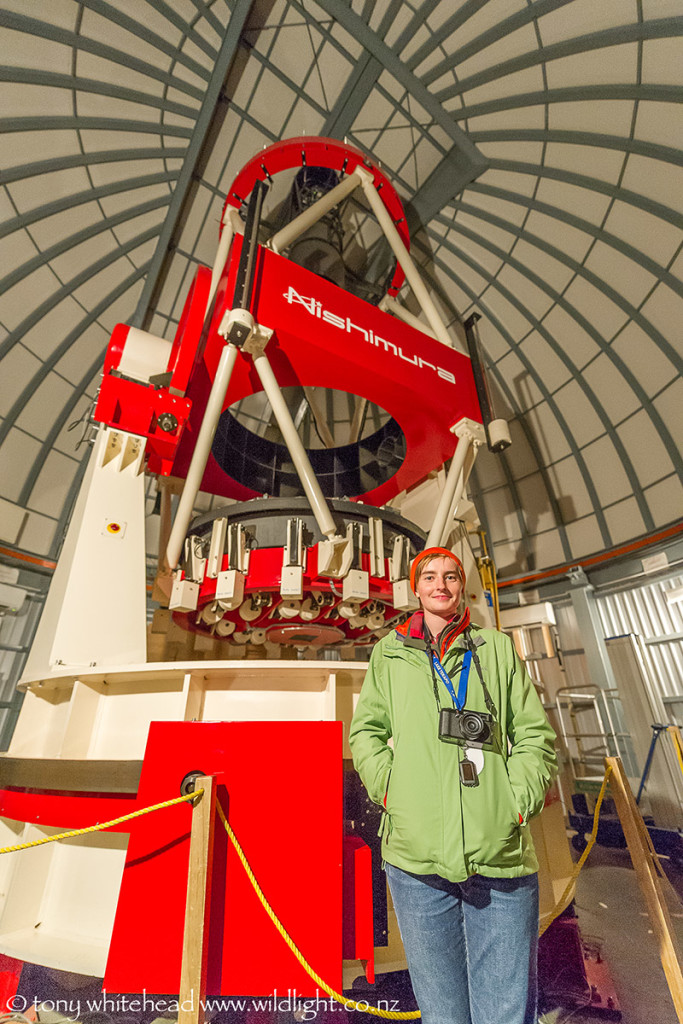
Mount John is worth a visit during the daytime as well. The views are spectacular and the coffee at the Astro-cafe is worth the trip up.
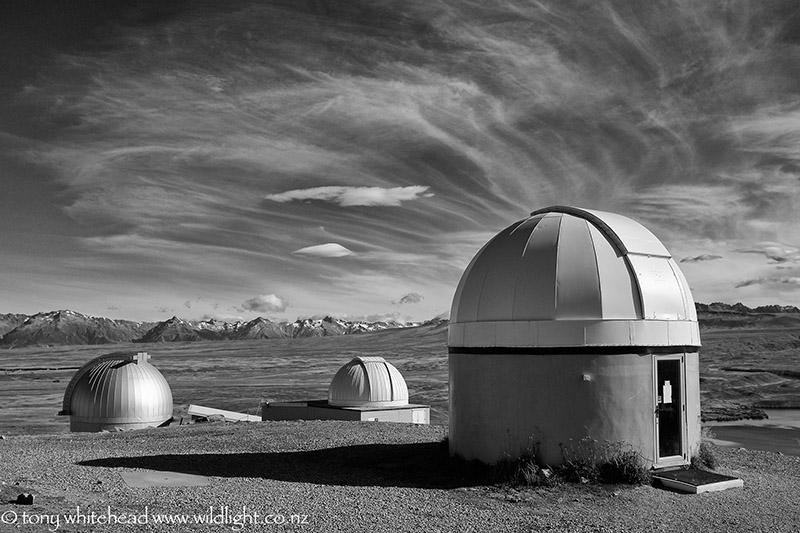
Tekapo and eclipse photo with Nikon D810. 24-120 f4 lens and 500mm f4 lenses respectively, both tripod mounted.
Milky Way and Mount John photos with Nikon D3s and 14-24 f2.8 lens. Tripod for 20s exposure of Milky Way.
Black & White photo of Mount John with Fuji X100s
